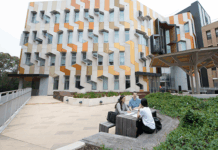Stalking is intentional, repeated, unwanted conduct by a person. It may be an attempt to maintain contact, or to threaten and intimidate through power and control. Stalking extends well beyond just physical following and can be extremely distressing. Stalking is a criminal act.
What is stalking?
Stalking conduct includes a broad range of acts that can be both physical and technology facilitated. As little as two unwanted occurrences can constitute stalking.
Examples
- Physically approaching or following you
- Tracking or surveilling you
- Phone calls, messages, voicemails, emails
- Loitering outside your home, work or school
- Entering your home
- Interfering with your personal property
- Accessing, using or changing your accounts
- Threatening you or people close to you
- Leaving or sending items, e.g. notes or gifts
- Ordering or cancelling goods for you
- Starting false legal action
- Publishing online about you
Stalking is illegal, however some actions that contribute to stalking are legal. A person may only realise they’re being stalked once they identify a pattern of incidents.
Stalking myths and facts
Myth: Stalkers are strangers whom the victim doesn’t know.
Fact: Anyone (a partner, friend, family member, acquaintance or stranger) can be a stalker, and anyone can be a victim.
Myth: You can’t be stalked by someone you are in a relationship with.
Fact: Stalking does occur in intimatepartner relationships, it is a method of coercion, power and control.
Myth: Stalking is romantic, and a demonstration of how much someone cares about you, it’s not dangerous.
Fact: Stalking demonstrates fixation and obsession, the longer it persists the more dangerous it can be to the victim’s safety.
Myth: Stalking is just physical following.
Fact: Technology-facilitated or cyberstalking is very common, it includes GPS tracking, searching or following online, sending viruses, accessing accounts, fake subscriptions, defamatory posts, false accusations or victimisation, catfishing etc.
Assistance and support
If you or someone you know is experiencing stalking, take action to be safe, then seek advice and support from professional services.
More information:
- Stalking factsheet
- Attend a Stalking Drop-In session hosted by Safer Community:
- Wednesday 28 April at 2:30pm Bendigo campus – https://www.latrobe.edu.au/events/all/stalking-drop-in-session-bendigo
- Thursday 29 April at 12pm Bundoora campus – https://www.latrobe.edu.au/events/all/stalking-drop-in-session-bundoora
Safer Community can provide you with expert advice, information, options and referrals.
Call Safer Community on 03 9479 8988
Email the Safer Community team
Complete an online report via our website
Visit us in person at Bundoora PE level 2 or Bendigo SSC
Not sure if Safer Community covers your issue? Get in touch for a consult or check out the Safer Community website for information.
Please note: Safer Community is not an emergency or critical response service, and reports, emails and voicemails are not reviewed outside of operating hours. For afterhours assistance please contact the La Trobe Crisis Line on 1300 146 307 or text 0488 884 100 or Security on campus at 9479 2222.















